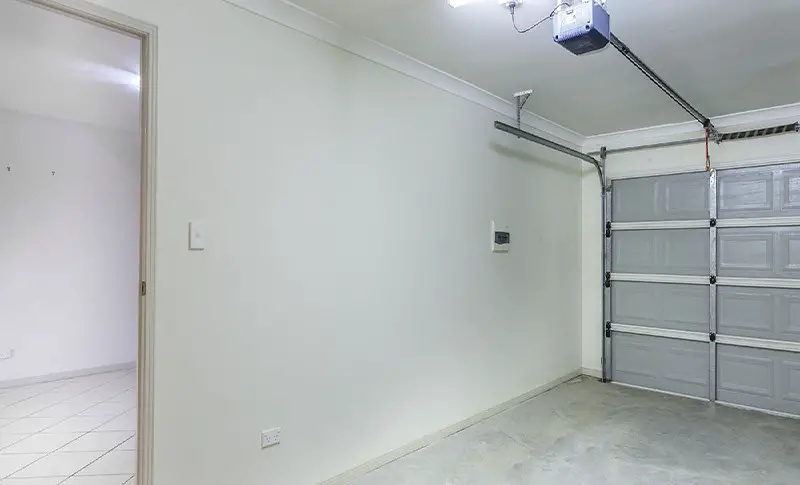As homeowners, we often focus on the design and functionality of our interior doors leading to different parts of our homes, such as the bedroom or the bathroom. However, one area that we often overlook is the door leading to the garage.
In this guide, we will cover everything you need to know about interior doors leading to the garage, from their purpose and benefits to the different types of doors available in the market.
We will also discuss some essential features that you need to consider when choosing the right interior door for your garage.
Why Do You Need an Interior Door Leading to Your Garage?

An interior door leading to the garage is not just a simple door that separates your living space from your garage. It serves several purposes and offers numerous benefits, some of which include:
Improved Security
An interior door leading to your garage enhances your home’s security, especially if you have an attached garage.
It acts as an additional barrier that prevents unauthorized access to your home. In case of a break-in or burglary attempt, the interior door will act as a deterrent and slow down the intruders’ entry into your living space.
Energy Efficiency
An interior door leading to the garage helps maintain your home’s energy efficiency by preventing air leakage.
This is particularly important if you have a heated or cooled garage, as it can affect your home’s overall energy consumption and utility bills.
Noise Reduction
A well-insulated interior door leading to your garage can help reduce noise levels, particularly if you use your garage as a workspace or a storage area for noisy equipment.
Types of Interior Doors for Garage
There are different types of interior doors available in the market that you can use for your garage. Here are some of the most popular ones:
Solid Wood Doors
Solid wood doors are the most traditional and popular type of interior doors for garage. They offer excellent insulation and noise reduction capabilities and come in a variety of wood species, styles, and finishes.
Steel Doors
Steel doors are durable, low maintenance, and offer excellent security. They are resistant to dents and scratches, making them ideal for high-traffic areas like the garage.
Fiberglass Doors
Fiberglass doors are lightweight, durable, and energy-efficient. They are also resistant to warping, cracking, and rotting, making them ideal for humid and damp areas like the garage.
Glass Doors
Glass doors are an excellent option if you want to bring natural light into your garage. They offer a modern and sleek look and are available in different styles and designs.
Features to Consider When Choosing Interior Doors for Garage
Choosing the right interior door for your garage involves considering several features that are essential for functionality and safety. Some of these features include:
Fire Rating
It is crucial to choose an interior door with a fire rating of at least 20 minutes if your garage is attached to your living space. This will help prevent the spread of fire from the garage to your home and give you enough time to evacuate.
Insulation
The level of insulation is an essential factor to consider, particularly if you live in a climate with extreme temperatures. Insulated doors help maintain your home’s energy efficiency by preventing heat loss or gain.
Security
The security of your interior door is vital for your safety and peace of mind. Choose a door with a strong lock and hinges that can withstand forced entry.
Size
Make sure to measure the size of your garage opening accurately before purchasing an interior door. Choosing the wrong size can cause installation issues and affect the door’s functionality.
Material
The material of your interior door affects its durability, insulation capabilities, and overall appearance. Choose a material that suits your needs, budget, and style.
Read also: Garage Interior Design
Installing an Interior Door for Garage
Step 1: Remove the Old Door
Before installing a new interior door, you need to remove the old one first. Start by removing the door handle and hinges, then gently pull the door out of its frame. If the old door is damaged, make sure to dispose of it properly.
Step 2: Measure the Doorway
Measure the width and height of the doorway where you will install the new interior door. Make sure to take accurate measurements, as any mistake can cause installation issues.
Step 3: Purchase the New Door
Once you have the measurements, purchase a new interior door that fits the doorway’s dimensions. Consider the material, insulation, and other features discussed earlier when choosing the right door.
Step 4: Install the Hinges
Attach the hinges to the door frame first, then attach the hinges to the new interior door. Make sure the hinges are aligned correctly, and the door can open and close smoothly.
Step 5: Install the Door Handle
Attach the door handle to the door according to the manufacturer’s instructions. Make sure the handle is securely fastened and can operate smoothly.
Step 6: Test the Door
After installing the new interior door, test it to ensure it functions correctly. Open and close the door multiple times to check for any issues.
Conclusion
An interior door leading to your garage is an essential component of your home’s security, energy efficiency, and noise reduction.
With the right features, material, and installation, you can enjoy the benefits of a functional and stylish interior door that complements your living space.
When choosing an interior door, make sure to consider the features discussed in this guide, such as fire rating, insulation, security, size, and material. With proper maintenance and care, your interior door can last for years and provide you with peace of mind.


